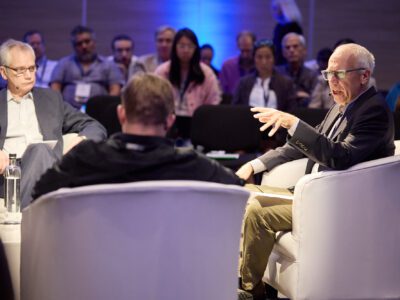Previewing the Supreme Court Oral Arguments in AEP v. Connecticut
On Tuesday the U.S. Supreme Court hears oral arguments in the only environmental case on its docket this Term: American Electric Power v. Connecticut. At issue in this critically important climate change case is whether a coalition of states, New York City and several private land trusts can pursue a federal common law nuisance claim against the owners and operators of massive Midwestern, coal-fired power plants that collectively generate an estimated 650 million tons of greenhouse gas emissions per year. The district court ruled in favor of the utilities, dismissing the lawsuit, only to be reversed by the U.S. Court of Appeals for the Second Circuit, which concluded that the case could and should proceed to an adjudication on the merits.
The issues before the justices are three: 1) whether the public and private plaintiffs have standing to bring this claim; 2) if the litigation is barred as a non-justiciable “political question”; and 3) whether the federal common law of nuisance is displaced, when it comes to climate change, by USEPA’s delegated authority to regulate greenhouse gas emissions under the Clean Air Act.
The Supreme Court has ordered extended arguments in the case, which will feature skilled and experienced advocates on all sides. Representing the states, New York City and the land trusts at tomorrow’s arguments will be New York state Solicitor General Barbara Underwood, a veteran Supreme Court advocate who served as a high-ranking official within USDOJ’s Solicitor General’s Office during the Clinton Administration. Sidley Austin partner Peter Keisler, a senior member of the Justice Department during President George W. Bush’s Administration (and Bush’s unsuccessful nominee to the D.C. Circuit seat vacated by John Roberts upon Roberts’ ascension to the Supreme Court), will argue for the private power companies.
But the most influential lawyer arguing tomorrow may well be acting U.S. Solicitor General Neal Katyal. The Obama Administration surprised and disappointed environmental advocates, first when it joined the companies in asking the Court to grant certiorari, and then on the merits in urging the justices to jettison the public nuisance lawsuit. To be sure, the Solicitor General’s Office is taking a somewhat more nuanced and measured position on the relevant issues than are the private power companies. But the fact remains that the federal government is arguing that the states and other plaintiffs lack standing to bring their public nuisance claims.
The Solicitor General’s views before the Court are generally given special deference by the justices, and the government’s position is one of many reasons why it seems probable that the Court will wind up reversing the Second Circuit and ruling against the plaintiffs.
I’ll be at the Court tomorrow to observe the arguments, and will report in this space after the session concludes on what promises to be a most lively morning of legal debate–and political theater.







One Reply to “Previewing the Supreme Court Oral Arguments in AEP v. Connecticut”
Comments are closed.